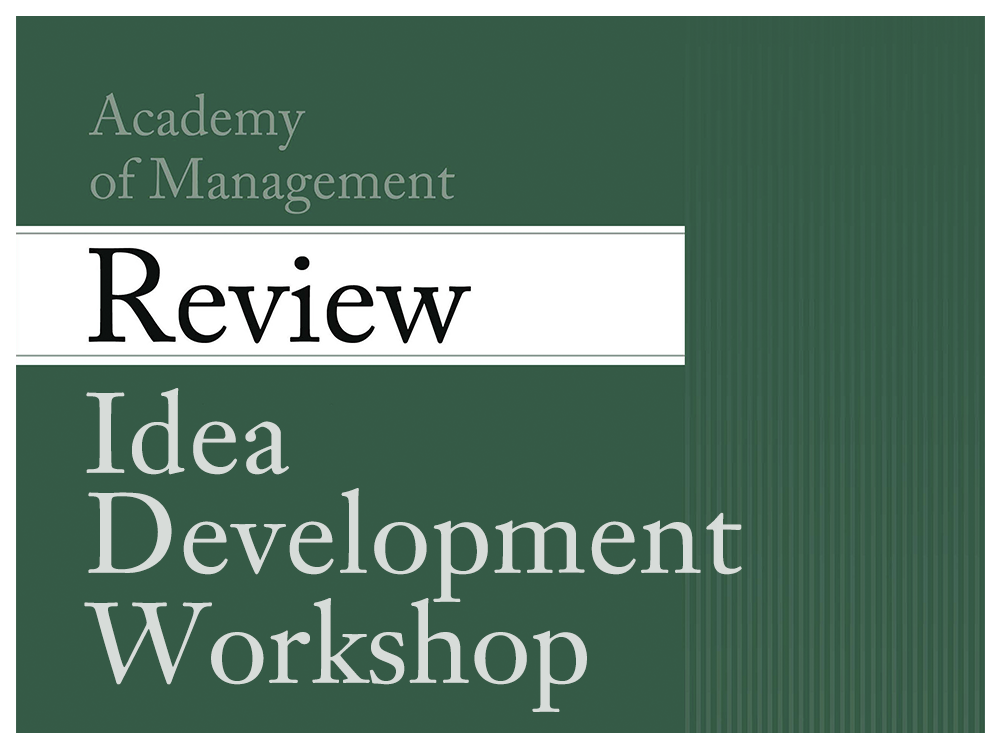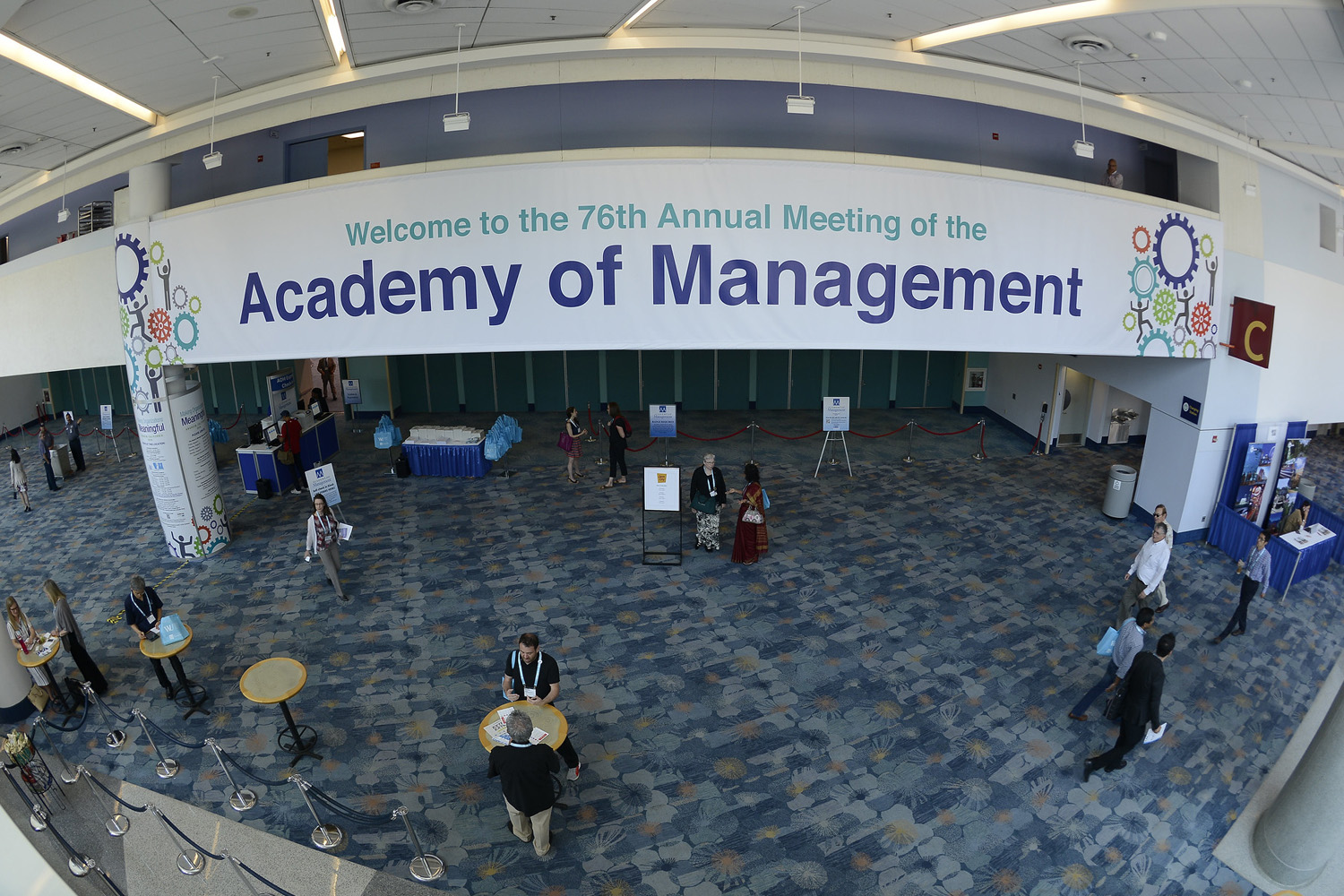
AOM 2016: Making Organizations Meaningful
The 76th Annual Meeting of the Academy of Management took place 5-9 August 2016 in Anaheim, California, USA. The 2016 Program Chair was Mary Ann Glynn of Boston College.
Meeting Theme
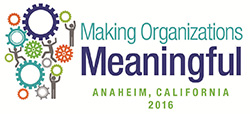
Making Organizations Meaningful Organizations occupy a central role in the ways we live our lives, for better and for worse. They enable us to be more efficient, to access goods and services faster than ever before, and to share information and experiences across the globe. And yet, they are not unproblematic. Recently, there have been highly publicized corporate scandals, Wall Street corruption, and failures of government to meet the needs of its citizens, with a resulting rise in public distrust and questioning of organizations’ reasons for being. We often take as given that an organization’s purpose to produce economic value; and, although economic value can often add to social value, sometimes it does not. This disjuncture raises the question of meaningfulness.
The meaningfulness of an organization is its expression of purpose, values or worth. It involves a sense of significance that goes beyond material success or profitability; rather, it highlights how organizations can play a larger and more positive role in the world. It is an approach embraced by the next generation of workers, the millennials (in their mid-to-late 30s), who often focus on making a positive difference in the world and a contribution to society -- with organizations, not in spite of them.
Interest in meaningfulness has grown, fueled in part by developments in cognitive perspectives on strategic competition, cultural approaches to organizational resources, positive outlooks on realizing human potential at work, institutional insights on leadership dynamics, both heroic and sensational, new modes of communication that are social, digitalized and immediate, and the real-world failures of the dominant economic model to assure progress in material well-being for so many.
Making organizations meaningful matters, and it matters in a multitude of ways that are both immediate and far-reaching, ranging from environmental sustainability to social equality, and extending across multiple levels of analysis. Meaningfulness at micro levels alerts us to engaging employees in work so as to maximize human potential and, at macro levels, it turns attention to organizational identity, culture, reputation, legitimacy and character. By looking across levels, we can discover mechanisms that potentially amplify or even mute meaningfulness, as well as the contrast of meaninglessness. We might ask: What are the mechanisms – political, economic, social, cultural or institutional – which situate and produce organizational meaningfulness (or the lack thereof)? What mechanisms are particularly salient for reaching different constituencies? How might this vary across a range of social, cultural or economic settings? This is fertile ground for researchers, given that organizational expressions of meaningfulness can be: communicated through different mediums, including practices, language, strategic behavior, leadership, ethics or culture; directed towards a varied set of stakeholders; and signaled strategically or symbolically, implicitly or explicitly.
The theme invites a wide-ranging spectrum of theoretical perspectives, methods, and applications, both classic and contemporary, which investigate those processes and outcomes that are associated with making organizations meaningful or perhaps even meaningless. Some potential questions to explore:
- How does organizational meaningfulness arise from broader systems of meaning embedded in industries, geographic regions, institutions, and societal cultures? What organizational actions and strategies effectively make organizations more (or less) meaningful?
- What are the intentional and unintentional ways in which organizations become meaningful? What might be some of the intended or unintended consequences?
- What are the positive ways of making organizations meaningful, internally (for employees) and externally (for other stakeholders)? How might organizations’ social initiatives, like CSR or sustainability, play a role? How do hybrid organizations that combine economics and ideology create meaning for their varied constituencies?
- How do individuals in organizations construct the meaning of their work and of the organization itself? How do organizational structures, identities and cultures contribute to individuals’ understanding of the significance (or insignificance) of what they do? And what are the cross-level effects between micro and macro levels?
- What might be the affective, behavioral and cognitive mechanisms by which organizations make meaning or fail to do so? Might these mechanisms be more (or less) effective with different demographic groups or generations (such as millennials)?
- If theories of organizational identity, culture and institutionalism have at their heart the creation and management of meaning, how do these different framings illuminate the processes of making organizations meaningful, for individuals or collectives? What would it mean, for instance, to have a culture of purpose?
- Can we begin to describe a typology of organizational meaningfulness? How can organizations move between or prioritize purpose and profits effectively?
- How is organizational meaningfulness associated with evaluation and valuation, by focal audiences, especially in new, emerging or changing markets? How do new (or revised) meanings translate to valuation criteria in the market?
- What are the connections between technologies and their labels in creating the meaning of new entrepreneurial ventures, innovations or new market categories?
- What are the implications of the changing nature of organizations and organizational work for making meaningfulness? For what types of organizations does meaningfulness matter, especially those beyond the corporate form?
- What are the failures in making organizations meaningful? How might organizations find (or recover) meaningfulness in the wake of its demise?
Meeting Resources
4 videos related to this meeting are available.
An online photo album with 276 pictures is also available.
An additional 23 photos are available of the 2016 All Academy Reception.
View the online program: Online | PDF | Program Addenda | Dynamic Edition
View the Conference Proceedings.
Awards and recognition
Upcoming Events
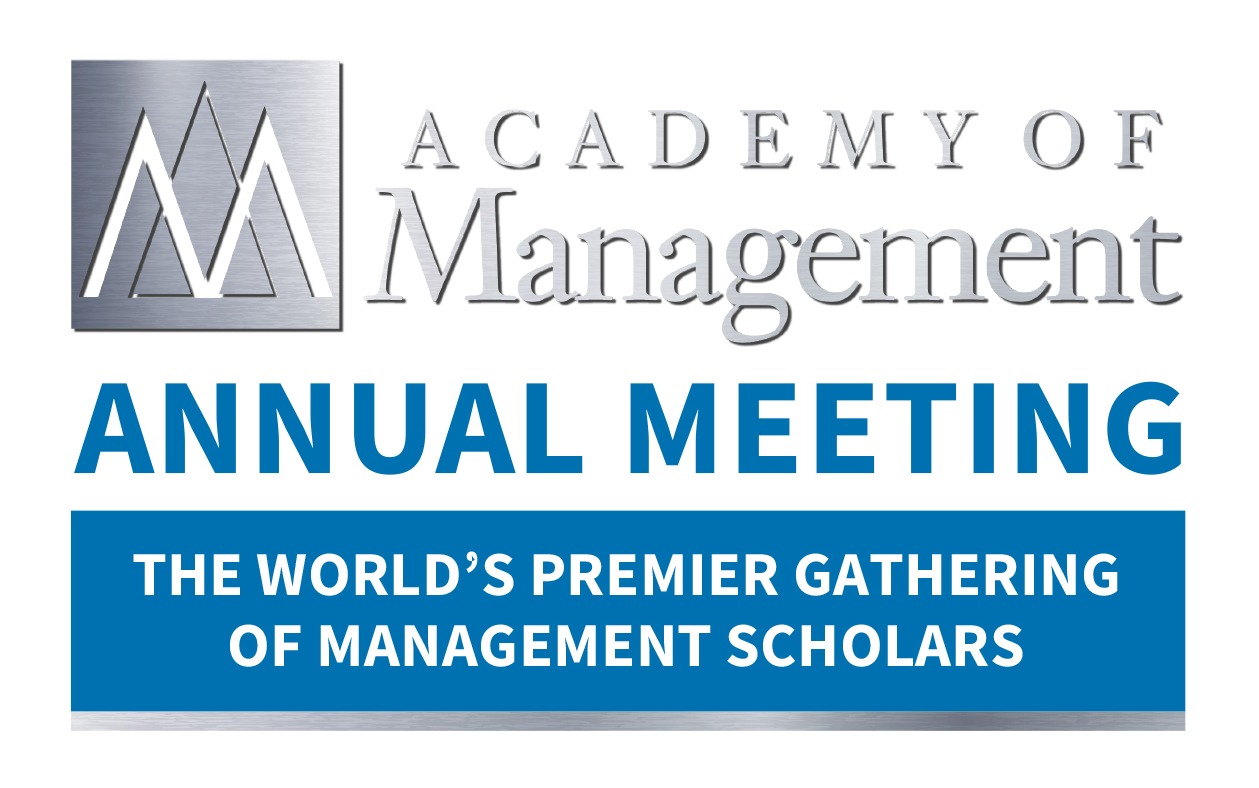 85th Annual Meeting of the Academy of Management
85th Annual Meeting of the Academy of Management
(AOM 2025)
25-29 July 2025
Copenhagen, Denmark
Call for Submissions: AMD Discoveries-through-Prose
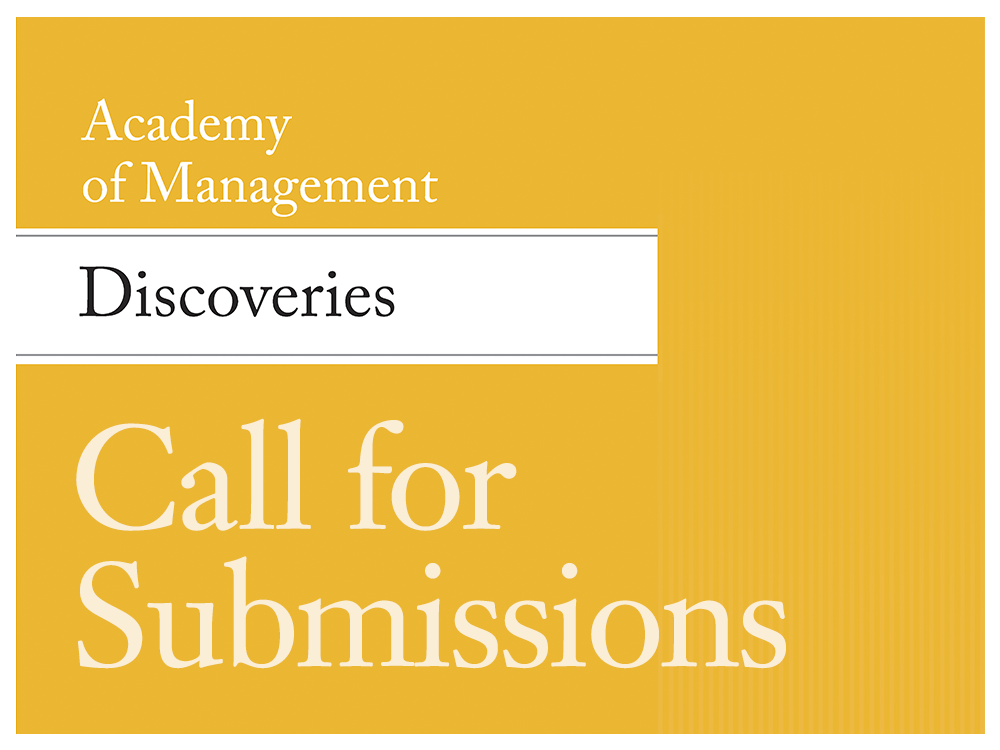
Call for Submissions: AMD Registered Reports

AMP Call for Special Issue Papers: Managing Under Political Turbulence
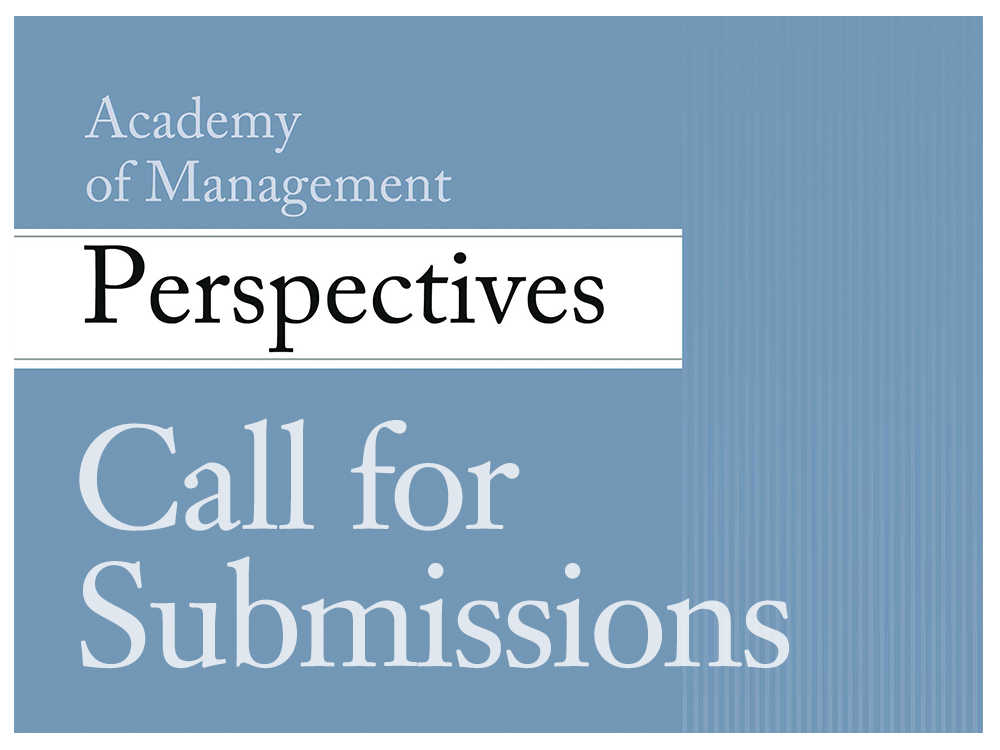
AMR Idea Development Workshop, France
